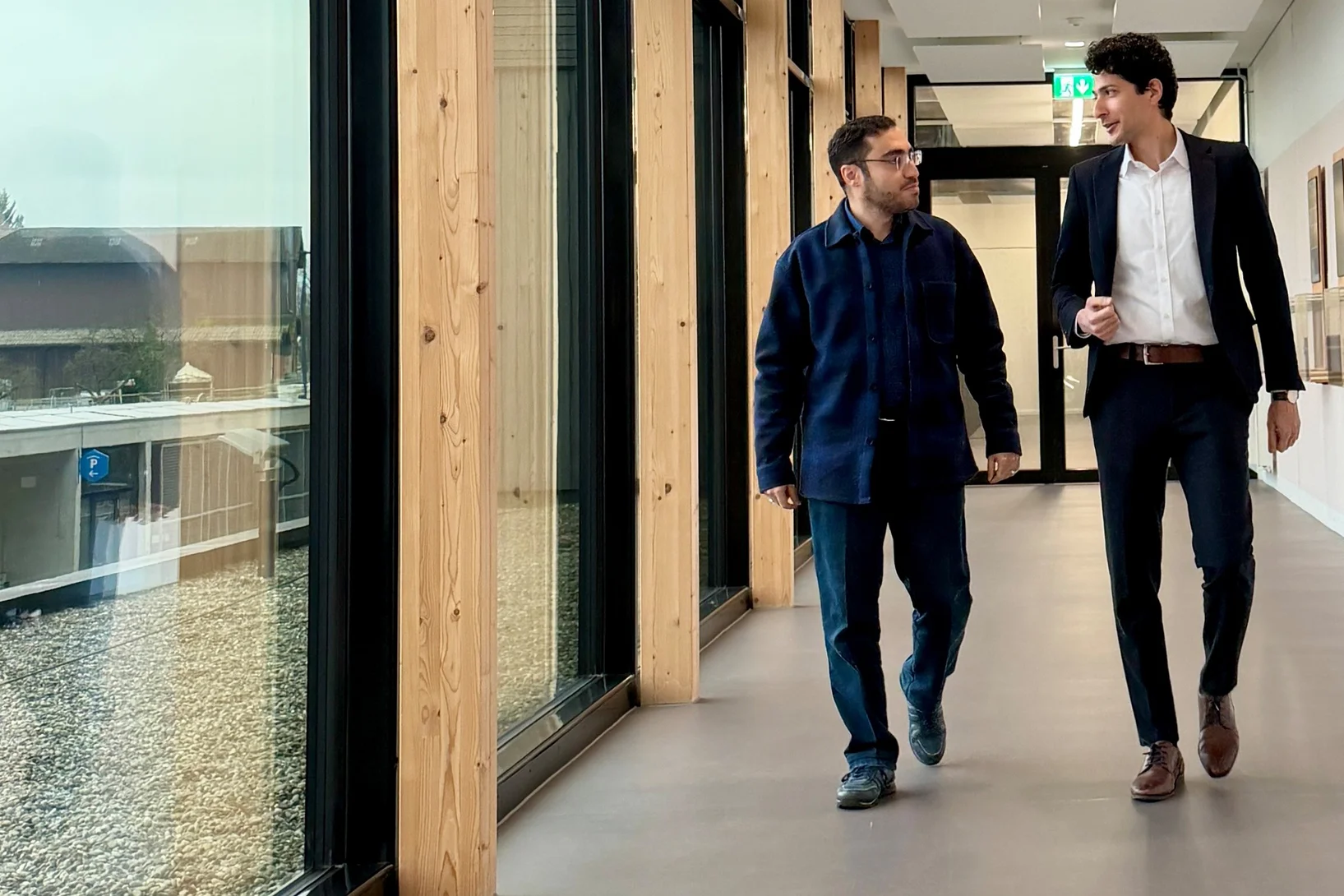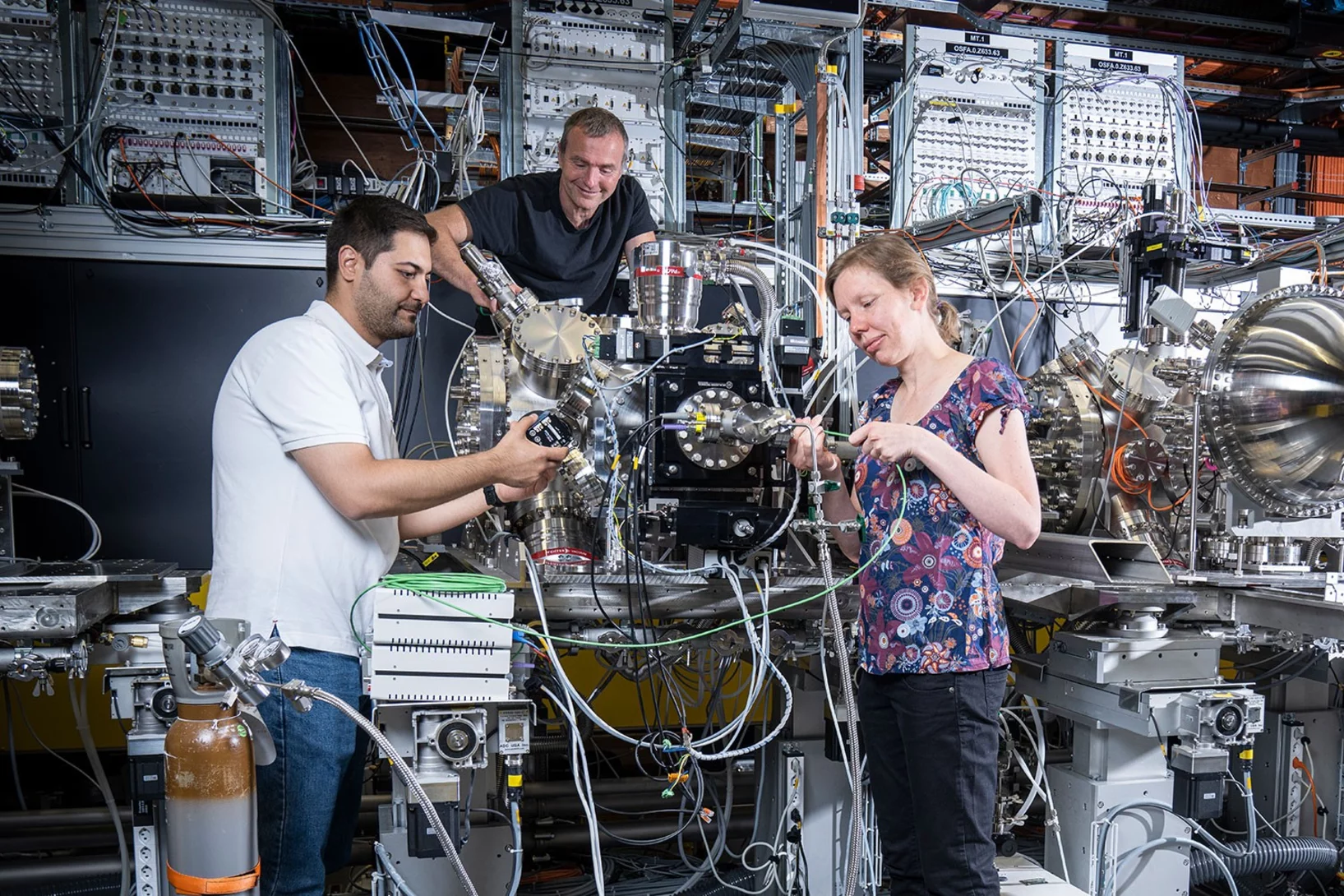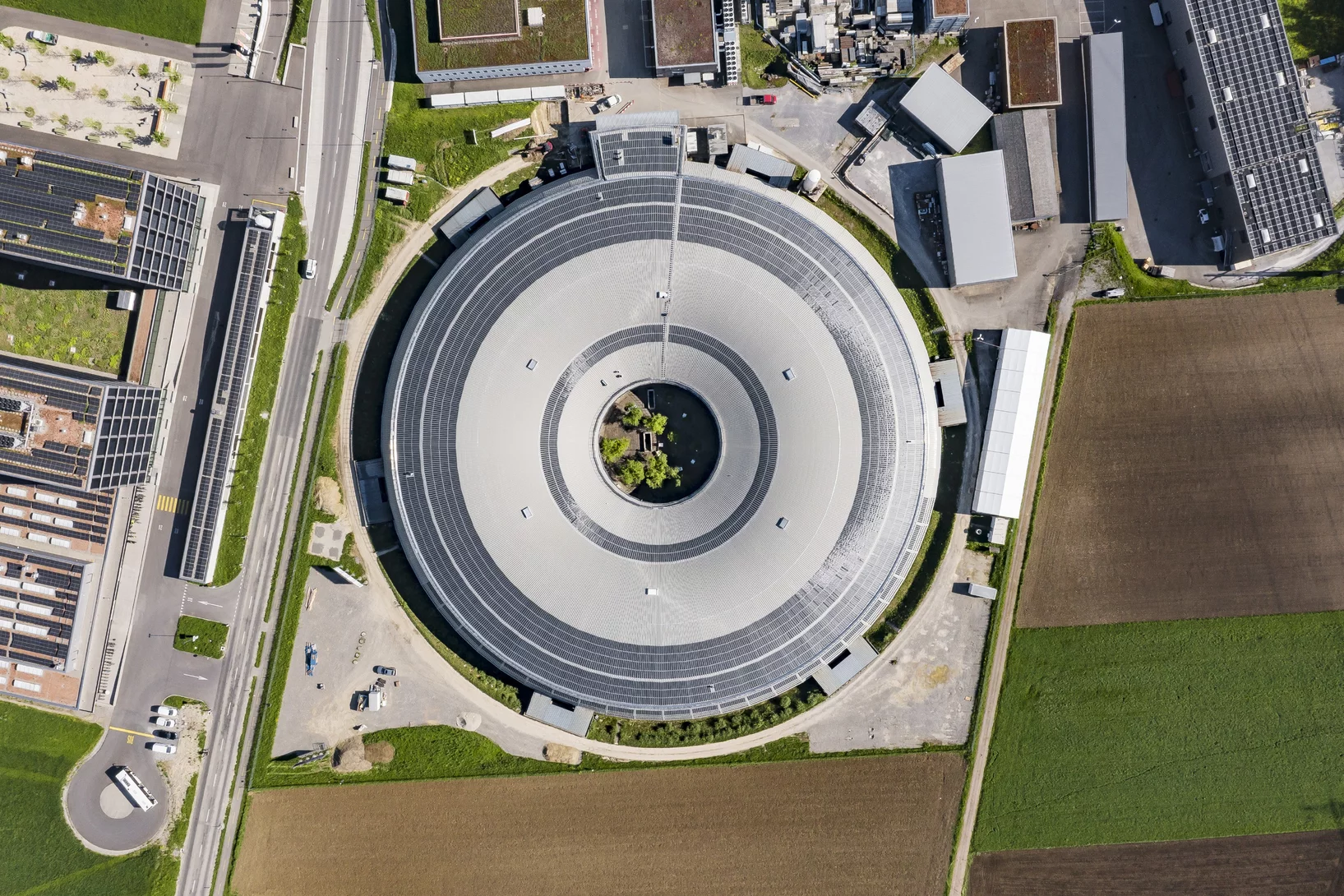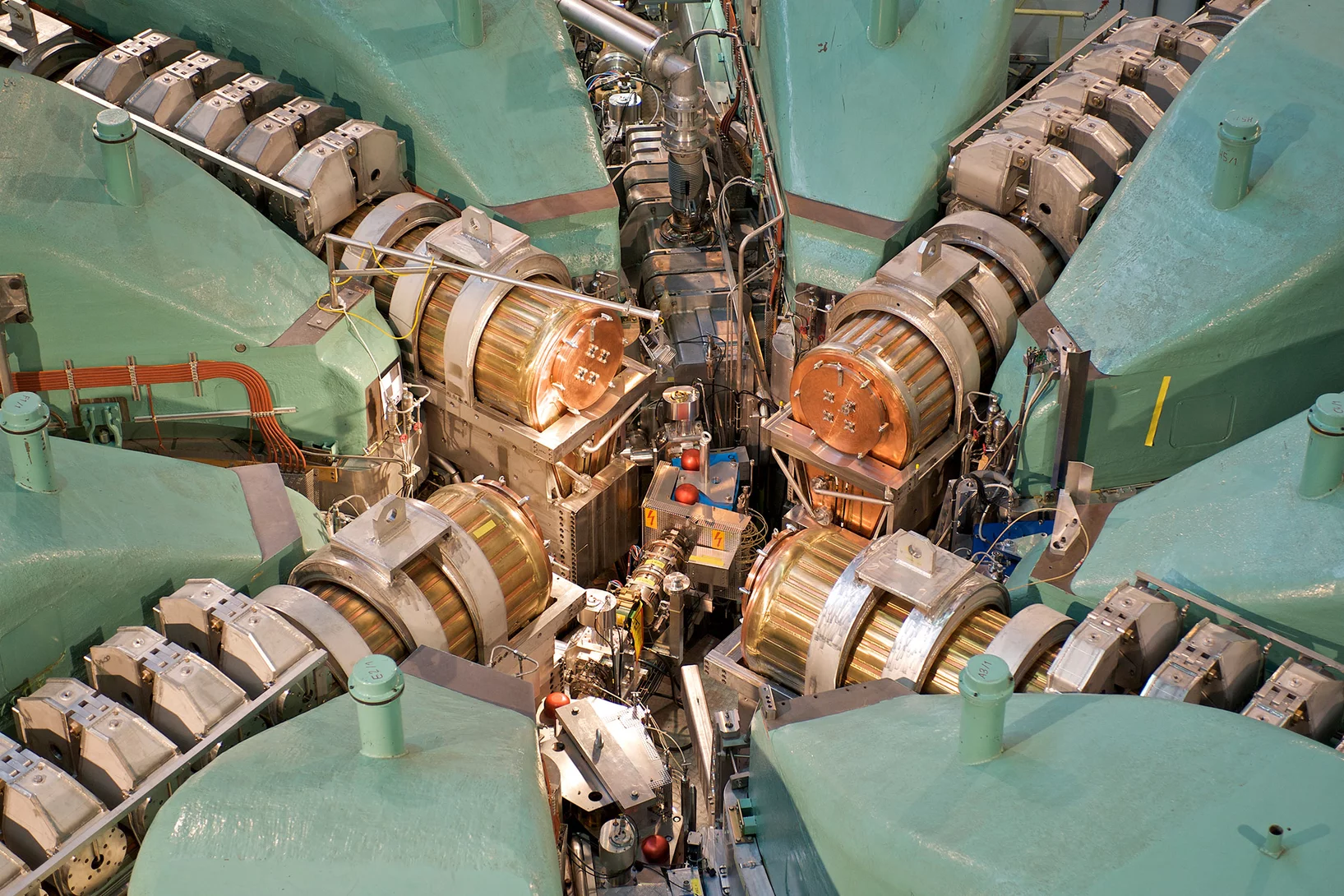With its globally unique research infrastructure, PSI offers unrivalled opportunities for cutting-edge national and international research.
The main areas of research at PSI
Recent highlights from our research
PSI Founder Fellowship for AI platform and solid-state batteries
PSI researchers Mohsen Sadr and Mohammadhossein Montazerian are receiving financial support and guidance for their business ideas through the PSI technology transfer team.
Important funding for muon research
PSI gets an NCCR: The Muoniverse project will further expand research on the beamlines for elementary particles called muons – at the world’s leading facility for muon beams.
Identifying the sources of Sarajevo’s smog
Fumes from wood and coal burning as well as from cooking are the main sources of the heavy smog in the capital of Bosnia and Herzegovina. That’s the finding of a comprehensive mobile measurement campaign by PSI researchers.
Interested in doing research at PSI? Do you want to use our infrastructure for cutting-edge research?
Find out more about our large-scale research facilities and other research centres.
Research Centers & Labs
Our research and service centres conduct internationally recognised cutting-edge research in the natural and engineering sciences and make highly complex large research facilities available to science and industry for their own research projects.
Scientific Highlights from our Centers
Second place for the best oral presentation at the 12th International Conference on Isotopes
Marie Théry, postdoctoral researcher in the Radionuclide development group, was awarded second place for the best oral presentation
Presentation Prize 2026 (Doktorandentag, Institute of Pharmaceutical Sciences, ETH Zurich)
Benjamin Hunkeler, PhD student in the “Nuclide Chemistry Group” received the price for the best oral presentation
Best Presentation Award 2025 (SwyMIC Day 2025 in Lausanne)
Jerome Schmid, PhD student in the “Nuclide Chemistry Group” received the price for the best oral presentation at the SwyMIC Day 2025 in Lausanne












